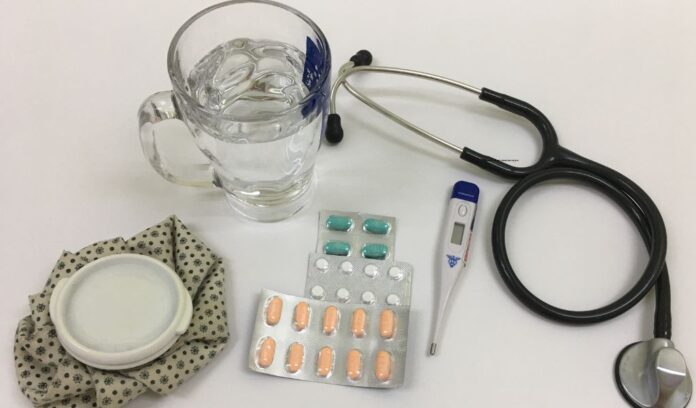Finally, it’s vacation time! You’ve been dreaming about this for months and can feel the excitement build as travel day approaches. Some people have a packing list on their phones, while others take pen to paper. Enjoy picking out your Instagram OOTD (outfit of the day) with matching accessories. However, don’t forget to pack medication in case you fall sick.
One would hope everything goes according to plan, but it’s better to be safe than sorry. If you’re traveling internationally, even a minor inconvenience can be debilitating. Recovering a lost passport or wallet is complicated, but minor health issues can be controlled by packing sensibly. Here are five tips to help you pack medications for your vacation.
1. Plan Ahead
If you’re not planning on having a family soon, a pregnancy scare could ruin your trip. The best way to ensure a relaxed vacation is to get contraceptives before you leave. You don’t want to be mapping directions to pharmacies when you’d rather enjoy the spa or happening nightlife.
If you can’t squeeze in a doctor’s visit before your trip, opt for telehealth or online services. A licensed healthcare provider will help you choose the right birth control method from the comfort of your home. Some options are easier for travel than others, especially depending on how long you’ll be away from home.
2. Don’t Forget the Regulars
Even though medication may be available at your destination, most resorts and hotels charge a premium. Also, it can be risky to experiment with different brands. A traveler’s basic first aid kit should include something for pain, diarrhea, motion sickness, a few bandages, and antibiotic ointment. Anyone with food allergies should remember their auto-injector in case of a severe reaction. You can ask all the questions you want, but sometimes cross-contamination in touristy destinations can take you to the emergency room.
If it’s a family reunion at a ski resort, keep your kids on regular cough and cold meds. It will be one less thing to worry about if they don’t like the grape flavor syrup available at the hotel. Even for adults, it’s safer to travel with tried and true over-the-counter antihistamines that could help with the sniffles.
3. Prep for the Outdoors
Everyone has extra energy during a vacation and the adrenaline rush brings out your adventurous spirit. You can even surprise yourself by trying ziplining or canoeing for the first time. So go ahead and enjoy the outdoors safely with some precautions.
When out in the sun, keep a travel-size version of your favorite sunblock in every bag. This way you’ll remember to reapply every two hours or so. Calamine lotion or hydrocortisone cream can help relieve itchiness from insect bites or poison ivy. Pack some tweezers to remove ticks or splinters from the skin.
Don’t forget insect-repellent lotion or spray if you plan to spend time outdoors in a hot and humid climate. Some travelers prefer mosquito-repelling bands and clip-on to strong-smelling sprays.
4. Remember Drugs Have Needs
Drugs are chemicals, which need a proper environment. The weather at home may not be the same as at your destination. So make sure medications are out of direct sunlight and not in very hot or cold temperatures. Some brands of insulin, for instance, need to be refrigerated. Check with your hotel if they have a mini fridge in the room you have reserved.
Just like it’s essential to check environmental stability, also check the expiry date of the drugs. Some families pack the same first aid kit for every trip. Make sure the medications have not expired or run out. You don’t want to be bending over in pain to find only one aspirin rolling around in the bottle.
5. Don’t Overdo It
It is not humanly possible to pack a mini pharmacy in your luggage. Pack the essentials, but don’t end up carrying extra stuff that you might not use. Make sure every container is not larger than the standard travel size of 3.4 ounces or 100 milliliters. Even if you have a half-empty bottle of cough syrup, airport security can throw it away. This is because their guidelines specify the size of the container, not the amount of fluid inside.
While traveling, luggage is opened frequently, which can be very dangerous if you have a curious toddler around. Make sure prescriptions and other medications have child-proof caps. Keep each bottle in individual zipped plastic bags. This can prevent the liquid medication from spilling and staining your new dress. Also, keep a doctor’s prescription with the generic name available, just in case your luggage gets lost or stolen.
Prevention is often better than treatment. It’s easier to avoid food poisoning by using hand sanitizer and avoiding street vendor food. You can reduce mosquito bites by wearing long-sleeved shirts and pants. Contaminated water is the usual culprit in a stomach bug, so only drink bottled water.
Traveling with medication is helpful for minor ailments, but always seek professional help if the condition worsens. Your health should be your first priority, so don’t push yourself too much. The idea of a vacation is to get away from the everyday grind. You may have planned an exciting scuba diving trip, but perhaps relaxing in the hotel room was what the universe planned for you.



















![10 Countries With the Best Healthcare in the World [Statistical Analysis] Countries With the Best Healthcare in the World](https://articleify.com/wp-content/uploads/2025/07/Countries-With-the-Best-Healthcare-in-the-World-1-150x150.jpg)









